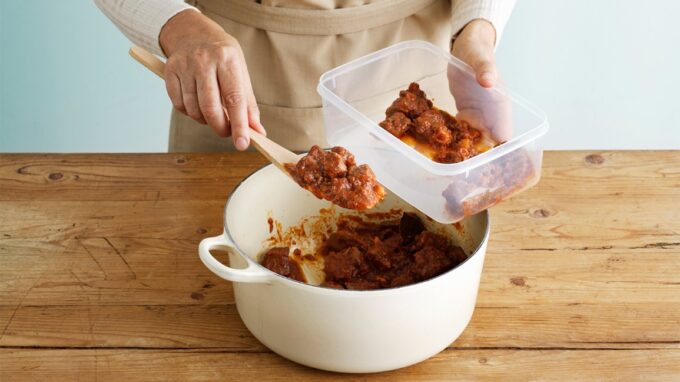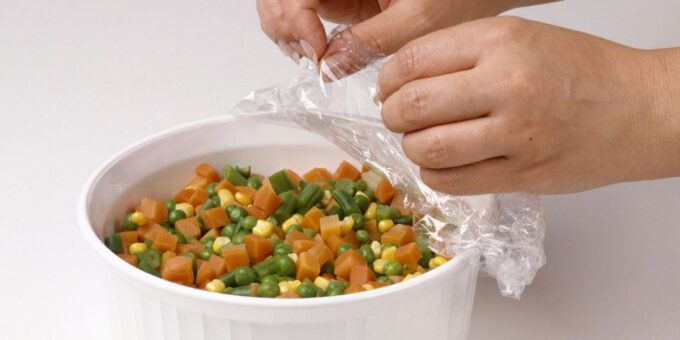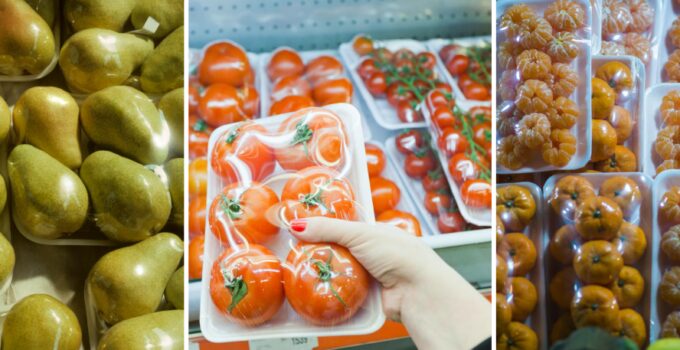Food waste is a big problem. An estimated one-third of all the food produced in the world (~1.3 billion tonnes) is discarded and contributes to ~8% of all human-caused greenhouse gas emissions. Basically, if all food waste was a country, it would be the third highest emitter of greenhouse gases after the US and China!
Reasons for waste include inadequate refrigeration, culture (in some countries it’s polite to leave some food) and lack of preparation. Food is wasted at various stages of the process from substandard quality crops being discarded, to suboptimal shaped fruit and veg being thrown away before they even reach the shelves, food whose quality is affected during transportation plus consumer-generated waste and cooked uneaten food discarded by restaurants. The average household wastes around 30% of all food bought.
Many people don’t realise that discarded waste contributes to climate change as it ends up in landfill where it rots, producing methane gas which also pollutes the air quality resulting in hazards to human health.
Simple tricks to reduce food waste
Reducing waste from food saves money as well as helping preserve the planet for future generations. Read on for some easy changes that can be made:
Meal planning, mindful shopping, and batch cooking

Source: suburbansimplicity.com
Meal planning saves time and money as well as carbon emissions. The most effective step you can take is to stop buying too much food in the first place. While shopping, stick to a list rather than impulse buying and purchase ‘ugly’ fruit and veg (often cheaper than aesthetically perfect specimens).
Mindful shopping can also make a substantial difference, for example a lot of seafood is frozen before it reaches the supermarket and subsequently thawed before being put on display, meaning it will only stay fresh for a few days. Buying frozen seafood extends its shelf life considerably.
Storage
Approximately two thirds of household food waste is due to spoilage. This waste can be prevented by optimising how fruit and veg are stored to prevent premature ripening, e.g., separating foods that produce ethylene gas (such as bananas, tomatoes, peaches, and pears) from those that don’t. Fridge organisation can also help ensure that older food gets eaten before newer food and ensure the temperature is 4-5C (6-7C is too low to preserve fod adequately). It’s worth researching whether items keep better inside or outside the fridge. For instance, keeping apples in the fridge dramatically improves their shelf life whereas bread and potatoes are better off out of the fridge in a cool dark place. Also consider batch cooking and freezing portions in advance to reduce the amount of leftovers.
Rethink your approach to best before and use by dates
‘Best before’ dates are a quality recommendation only; many items are perfectly safe for consumption after this date and can be checked by sniffing, tasting or looking at them (e.g. for mould). In fact, some UK businesses are starting to remove best before dates in a bid to reduce waste. ‘Use by’ dates should be adhered to as food is not safe for consumption after this date, even if it smells okay (e.g., risk of food poisoning from bacteria).
Utilise leftovers

Source: healthline.com
There are so many ideas to reduce leftovers being thrown away:
- Factor leftovers into your meal planning
- Store leftovers in a transparent rather than an opaque container
- Bring restaurant leftovers home
- Be creative with waste. Fruit and veg can be frozen or preserved (e.g., using excess ripe apples to create apple sauce or pickle excess pears), or turned into smoothies, dips or homemade stock. Many people don’t realise that the peel of kiwi fruit, potatoes and carrots can be eaten. Use orange and lemon peel to liven up water. Coffee grounds can be used to fertilise your garden, neutralise odours in the fridge or scour the sink.
- Many councils in the UK collect waste for recycling. If this isn’t an option, composting leftovers in a composter that allows oxygen to enter reduces the amount of methane emitted into the atmosphere and ensures the carbon ends up in the soil generated
Adopt a more sustainable diet
- Increase the proportion of meat-free days (meat and dairy products have higher carbon emissions than fruit and vegetables)
- Consider becoming vegetarian or vegan, ensuring that produce is not imported (e.g., out of season asparagus)
- Buy food that meets a credible certified standard (sourced and produced sustainably)
- There’s no point in converting to veganism if you are buying products that contribute to deforestation
Food packaging considerations
Another aspect worthy of consideration if you are keen on reducing your environmental impact is to choose products with responsible packaging. Kempner are a specialist packaging company who suggest consumers should opt for products without plastic packaging and choose food in sustainable shrinkwrap packaging, or shop at stores that allow you to refill your own containers.
Increase awareness of the environmental impact of food waste

Source: nbcnews.com
Many people don’t realise how much waste they are generating or understand the impact it has on the environment. Share the changes you’ve made with friends and family to increase awareness; if everyone makes small changes, the collective positive impact on the environment is huge!
Start a compost bin
This is a great way to reduce that amount of waste that you create. Of course, you are still producing food waste by doing things like peeling potatoes or chopping vegetables but leaving the stalks and roots out of your dishes. However, by composting this waste you are actually creating nutrient rich soil which can be used to grow more vegetables. Composting is a great way to stop so much unnecessary waste reaching landfill, where it can cause all sorts of problems like excessive methane production as waste is decomposed.
Conclusion
There are many things that we can do to live more sustainably. This article has covered some things you can do, but there are so many more ways to live more sustainably.







